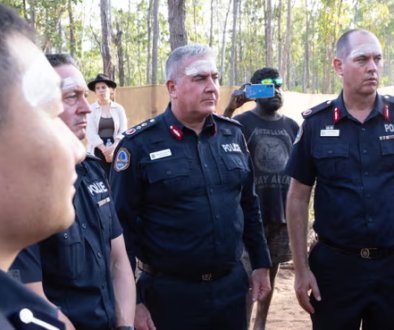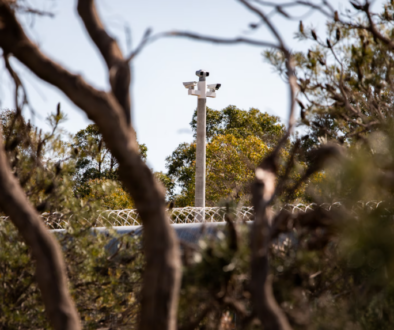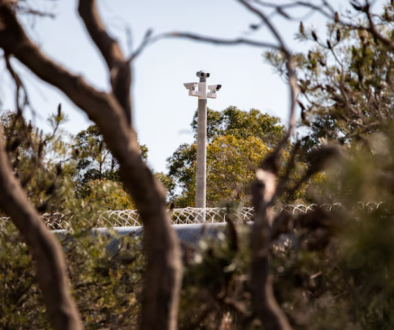As the WA government plugs improvements to its youth justice system, a child in custody is dead. Why?
If ever there was a time to recognise youth detention is a symptom of much deeper problems in our society, it’s now.
The tragedy of Western Australia’s first recorded death in juvenile detention last year, and the damning coronial inquest that followed, showed how broken the system that locked up teenagers was, and how desperately it needed to be improved.
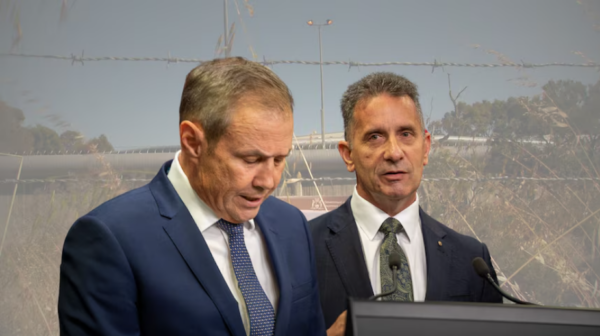
Now, just 10 months later, another teenager has been failed, his life cut short at 17 years despite all the improvements that have supposedly been made in detention.
The government has listed them off time and time again, and did so again yesterday morning — more staff, more and better programs and support, a new Aboriginal Services Unit and slowly improving infrastructure.
And yet none of it was enough to stop this boy losing his life. Why?
WARNING: This story discusses incidents of self-harm. Aboriginal and Torres Strait Islander readers are advised that this article contains the name of a person who has died.
Fronting the cameras
The nearly 40-minute press conference the government held to share the news yesterday gave a few hints.
The event followed the norms of these things.
Premier Roger Cook, his Corrective Services Minister Paul Papalia and his Commissioner Brad Royce lined up to share the expected comments – the “great sadness and regret”, the “deepest and most sincere condolences”.
Some questions were answered, others declared insensitive for the time.
“Clearly a failure has taken place,” Mr Cook said.
Then came the list of improvements, repeated over and over – programs mentioned 10 times, staffing four times.
It’s necessary and important work which could not be ignored after Cleveland Dodd’s death made failings within the walls of youth detention so crystal clear.
As just one example, Cleveland had spent less than two hours out of his cell on 77 of his final 93 days alive.
The government had no choice but to put effort into solving those long-standing problems – effort it seemingly could have made before but hadn’t, as the inquest into his death heard.
But now, a second teenager has died on their watch.
He had been in detention previously, but for only a few days this time.
It exposes something which was easier to miss in Cleveland’s case but was just as true.
And it explains why Cook can tell the media he has “more confidence than ever before in terms of the way we are managing our juvenile detention facilities” just hours after a young person died in one of those facilities.
He wasn’t talking about the real problem.
‘They need support, not security’
The entire reason we need youth detention is because the systems meant to keep Cleveland, and now this 17-year-old boy, safe and give them the lives most of us take for granted, failed in the worst way possible.
That’s why he had been in and out of detention including Unit 18, the ABC understands, last year.
It’s why almost all young people go in and out of detention.
“What we seem to be doing is just investing in the justice end of the system, which is way too late and is inherently dangerous for these children,” National Children’s Commissioner Anne Hollands said yesterday.
“We have to start investing upstream in the systems that should be helping kids and families much earlier and helping the community to prevent offending by children.”
And the offending is preventable.
Many of the children and teenagers in detention have mental impairments which make them pre-disposed, but not destined, to offend. They can’t think like you or I and need extra help.
Many are stuck in cycles of poverty which no one has been able to help them out of.
“To keep categorising children and young people as violent … takes us away from the fact that these are children and young people with multiple complex needs and disabilities who need high levels of support, not high levels of security,” Ms Hollands’s WA colleague, Jacqueline McGowan-Jones said yesterday.
The advice of experts is clear – when young people get that help, they end up on a better path.
Few votes in hard work
This isn’t new to anyone, including the government.
Commissioner Royce even politely reminded his bosses of it yesterday morning.
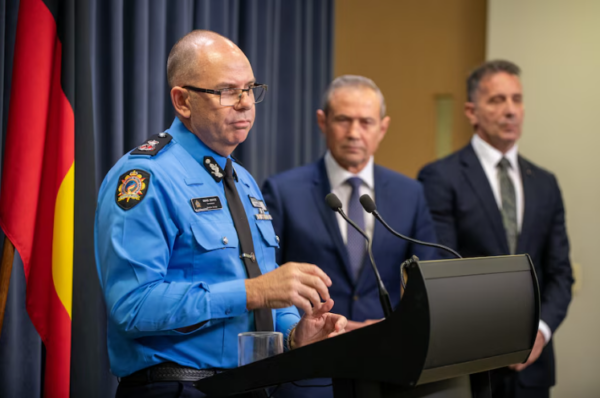
“What we need to spend more time [on], and [this] will take generational change, is the young people themselves,” he said.
“Because when they come to me I have very short periods with them and they come with such trauma and such history that the challenge is significant.”
It’s a message experts have been shouting for years, including Ms Hollands in a report she released last week titled ‘Help Way Earlier’.
“We need the Commonwealth to provide leadership and convene a national task force on child justice reform and leadership on making child safety and wellbeing a national priority in this country,” she said.
Former Australian of the Year, Fiona Stanley, told the Dodd inquest the entire way of trying to care for our state’s most vulnerable people from right before birth needed to be reconsidered, with a focus on practical support and medical diagnoses.
There have also been calls to move youth justice out of the adult-focused Corrective Services arm of the Department of Justice, as has been done in every other state and territory, to make it less punitive and more rehabilitative.
And then there’s the push to raise the age of criminal responsibility to take the justice system out of younger peoples’ lives and make responses to run-ins with the law more focused on welfare.
However it’s done, it means a lot of work for the government with few votes in return.
But if anyone can do it, you’d expect the richest and most powerful government in the nation might at least be able to get things moving in a meaningful way.
Because in reality, fixing youth detention is like putting a better ambulance at the bottom of the cliff.
It’s absolutely critical to get right. But the best thing is not to need it in the first place.
Because, as Ms McGowan Jones explained:
“If we keep funding the ambulance at the bottom of the cliff, our children will continue to die.”
Contact us
Please provide a brief description of your claim.

